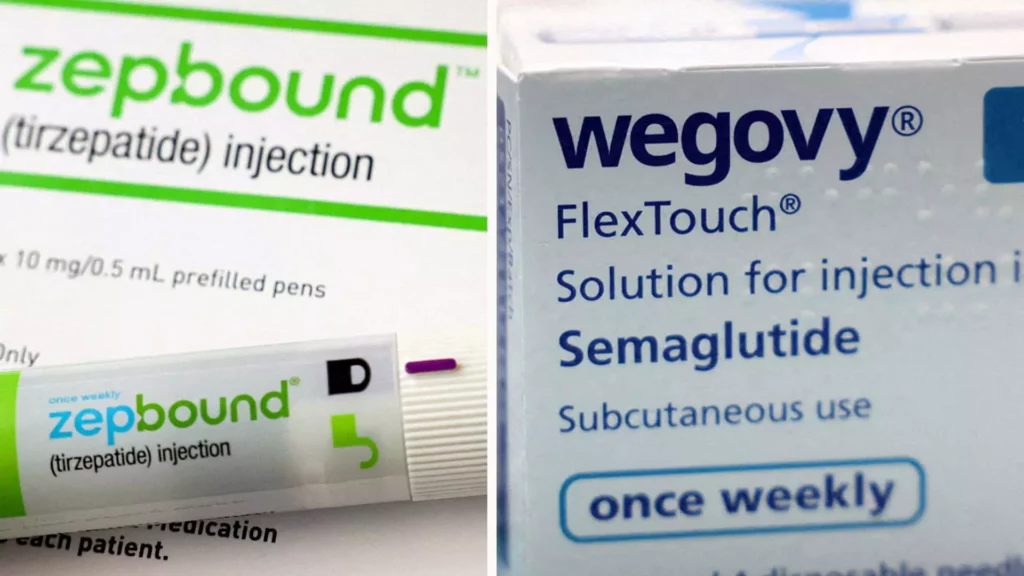In a significant development in the field of weight loss medications, Eli Lilly announced that its obesity treatment, Zepbound, demonstrated superior efficacy when compared to Novo Nordisk’s Wegovy in the first head-to-head clinical evaluation of these weekly injectable drugs. This new data, eliciting considerable interest within the healthcare community, suggests a potential shift in treatment paradigms for patients struggling with obesity. Zepbound’s performance indicates an impressive average weight reduction of 20.2%, allowing patients to shed approximately 50 pounds over a 72-week duration, which positions it as a promising alternative for individuals battling obesity.
Data from the phase three clinical trial reveal that Zepbound led to a notable weight loss advantage—47% greater than that achieved with Wegovy. Statistical insights indicate that more than 31% of participants using Zepbound experienced a weight loss of at least a quarter of their body weight, while only 16% of those on Wegovy achieved similar results. It is essential to recognize that these findings are corroborated by earlier studies and analyses, which consistently suggested that Zepbound outshines Wegovy regarding weight loss outcomes.
The implications of these findings are significant. They provide more than just an overt comparison; they reflect an essential exploration into treatment options for individuals grappling with obesity, especially those affected by related medical conditions such as hypertension or sleep apnea. Dr. Leonard Glass of Eli Lilly emphasizes the necessity for informed decisions regarding treatment choices, reflecting the growing need for effective solutions in obesity management.
As the obesity drug market continues to expand—projected to reach a staggering $150 billion by the early 2030s—Eli Lilly’s announcement positions Zepbound as a formidable contender. The company’s optimism regarding Zepbound’s prospects in the commercial landscape is further supported by predictions from the analytics firm GlobalData, which estimates annual sales for Zepbound to hit approximately $27.2 billion by 2030 compared to Wegovy’s anticipated revenue of $18.7 billion.
This competition comes at a crucial time for both companies, as demand for weight loss treatments has exceeded supply, prompting both Eli Lilly and Novo Nordisk to invest significantly in scaling up production capabilities. The recent inclusion of all doses of these treatments as “available” by the Food and Drug Administration (FDA) is a promising sign for those awaiting access to these crucial medications.
Diving deeper into the pharmacological distinctions, it is crucial to note that Zepbound employs a dual mechanism by activating two gut hormones—GIP and GLP-1—aiming to reduce appetite and regulate blood sugar levels. In contrast, Wegovy activates only the GLP-1 hormone. Researchers posit that the additional action on GIP may enhance how Zepbound affects sugar breakdown and fat metabolism, potentially accounting for its superior weight-loss results.
Despite the encouraging findings and market potential, the practical adoption of these treatments is not without challenges. Issues surrounding insurance coverage for weight-loss medications remain a significant barrier to access in the United States. Both Zepbound and Wegovy present financial hurdles, costing approximately $1,000 per month without insurance. The disparity in insurance coverage leads to an inequitable situation, whereby only those with adequate financial resources can access them.
The soaring prices can render effective long-term solutions unattainable for many individuals, underscoring the need for healthcare policies that support broader access to obesity treatments. Solutions must encompass not only pharmaceutical availability but also address the systemic barriers preventing patients from receiving proper care.
Eli Lilly’s Zepbound pivotal trial results signal a hopeful advancement in obesity treatment. With its promising efficacy and the potential to reshape the competitive landscape of weight-loss medications, Zepbound could significantly alter treatment protocols for obesity. As the healthcare community anticipates the future contributions of these treatments, ensuring accessibility and affordability remains crucial in making these groundbreaking therapies available to all who need them.

